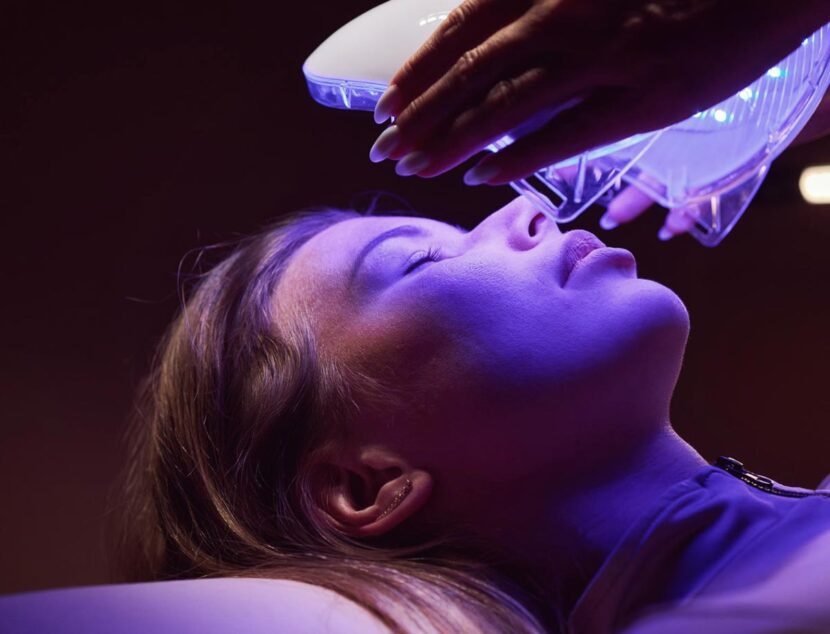Eczema, also known as atopic dermatitis, is a chronic skin condition affecting millions of people globally. It is characterized by inflamed, itchy, and red skin patches that can occur anywhere on the body. Eczema often presents with dry, scaly skin and can cause significant discomfort and self-consciousness for those affected.
The exact etiology of eczema remains unclear, but it is believed to result from a combination of genetic and environmental factors. Individuals with eczema typically have a compromised skin barrier, allowing easier penetration of irritants and allergens, which leads to inflammation and itching. Eczema can affect individuals of all ages, but it is most frequently diagnosed in children.
While many children outgrow the condition, some continue to experience symptoms into adulthood. The impact of eczema on quality of life can be substantial, affecting sleep, self-esteem, and overall well-being. Management of eczema often requires a comprehensive approach, including trigger identification, appropriate skincare, and medical treatment when necessary.
Although there is currently no cure for eczema, various treatment options are available to help manage symptoms and improve the quality of life for those living with the condition.
Key Takeaways
- Eczema is a chronic skin condition characterized by red, itchy, and inflamed skin.
- Common triggers for eczema flare-ups include stress, allergens, and irritants.
- Recent advances in eczema research have focused on understanding the role of the skin barrier and immune system in the development of eczema.
- Innovative eczema treatment options include biologic medications and targeted therapies.
- Holistic approaches to eczema management may include lifestyle modifications, stress reduction techniques, and natural remedies.
Eczema Symptoms and Triggers
Triggers of Eczema Flare-Ups
Eczema flare-ups can be triggered by a variety of factors, including allergens, irritants, stress, climate, and certain foods. Allergens such as pet dander, pollen, and dust mites can exacerbate eczema symptoms, as can irritants like harsh soaps, detergents, and fragrances. Stress and changes in climate or weather can also trigger flare-ups for some individuals.
Identifying and Avoiding Triggers
Identifying and avoiding triggers is an important part of managing eczema. Keeping a journal to track flare-ups and potential triggers can help individuals pinpoint what may be exacerbating their symptoms. Once triggers are identified, steps can be taken to minimize exposure and reduce the likelihood of flare-ups.
Managing Eczema Symptoms
Maintaining a consistent skincare routine using gentle, fragrance-free products can help keep the skin hydrated and reduce the risk of irritation. Additionally, managing stress through relaxation techniques or therapy may also be beneficial in reducing eczema symptoms. By identifying and avoiding triggers, and maintaining a healthy skincare routine, individuals can better manage their eczema symptoms and improve their overall quality of life.
Recent Advances in Eczema Research
In recent years, there has been significant progress in understanding the underlying mechanisms of eczema and developing new treatment options. Researchers have identified specific genetic mutations that may contribute to the development of eczema, shedding light on the hereditary nature of the condition. This knowledge has led to the development of targeted therapies that aim to address these genetic abnormalities and reduce inflammation in the skin.
Additionally, studies have shown that the skin microbiome plays a role in eczema development, leading to research into probiotics and other microbiome-targeted treatments for eczema. Advances in immunology have also contributed to the development of new biologic medications for eczema. These medications work by targeting specific components of the immune system that are involved in the inflammatory response seen in eczema.
Biologic medications have shown promising results in clinical trials, offering new hope for individuals with severe eczema that has not responded well to traditional treatments. Furthermore, research into novel topical treatments and non-steroidal anti-inflammatory agents has expanded the range of options available for managing eczema symptoms.
Innovative Eczema Treatment Options
In addition to traditional treatments such as moisturizers, topical corticosteroids, and antihistamines, there are several innovative treatment options available for individuals with eczema. One such option is phototherapy, which involves exposing the skin to ultraviolet light under medical supervision. Phototherapy has been shown to reduce inflammation and itching in some people with eczema, particularly those with moderate to severe symptoms.
Another emerging treatment option is the use of biologic medications, which target specific components of the immune system to reduce inflammation in the skin. For individuals with severe eczema that does not respond well to other treatments, oral immunosuppressants may be prescribed to help control symptoms. These medications work by suppressing the immune system’s response and reducing inflammation throughout the body.
While they can be effective in managing eczema symptoms, they also carry potential risks and side effects that must be carefully considered. Additionally, ongoing research into novel topical treatments and non-steroidal anti-inflammatory agents continues to expand the range of options available for managing eczema symptoms.
Holistic Approaches to Eczema Management
In addition to medical treatments, many individuals with eczema find relief through holistic approaches that focus on overall health and well-being. Dietary changes such as eliminating common trigger foods or incorporating anti-inflammatory foods may help reduce eczema symptoms for some individuals. Stress management techniques such as meditation, yoga, or acupuncture can also be beneficial in reducing flare-ups and improving overall quality of life.
Furthermore, natural remedies such as coconut oil, oatmeal baths, and herbal supplements have been used by some individuals to soothe irritated skin and reduce itching. Incorporating holistic approaches into an eczema management plan can complement traditional medical treatments and provide additional relief for some individuals. It is important for individuals to work closely with their healthcare providers when considering holistic approaches to ensure they are safe and effective for their specific situation.
While holistic approaches may not be a cure for eczema, they can offer valuable support in managing symptoms and improving overall well-being.
Personalized Eczema Care: Tailoring Treatment to Individual Needs
Personalized Treatment Plans
As our understanding of eczema continues to evolve, there is growing recognition of the need for personalized care that takes into account each individual’s unique circumstances and needs. Personalized treatment plans may involve a combination of medical interventions, lifestyle modifications, and holistic approaches tailored to address specific triggers and symptoms. For example, individuals with severe eczema may benefit from a combination of biologic medications and phototherapy, while those with milder symptoms may find relief through dietary changes and stress management techniques.
Ongoing Monitoring and Communication
In addition to personalized treatment plans, ongoing monitoring and communication with healthcare providers are essential for optimizing eczema management. Regular follow-up appointments allow for adjustments to treatment plans based on individual responses and changing needs over time.
Open Communication for Optimal Care
Furthermore, open communication between patients and healthcare providers is crucial for addressing concerns, discussing treatment options, and ensuring that individuals feel supported in managing their eczema.
Future Directions in Eczema Treatment and Symptom Management
Looking ahead, there are several exciting developments on the horizon for eczema treatment and symptom management. Ongoing research into the skin microbiome may lead to new probiotic-based treatments that target dysbiosis and inflammation in the skin. Additionally, advancements in gene editing technology hold promise for correcting genetic mutations associated with eczema, potentially offering a long-term solution for some individuals.
Furthermore, continued exploration of immunomodulatory therapies and targeted biologic medications may lead to more effective and personalized treatment options for individuals with eczema. In addition to medical advancements, there is growing recognition of the importance of patient-centered care in eczema management. Empowering individuals with knowledge about their condition and involving them in decision-making processes can lead to more effective treatment outcomes and improved quality of life.
As research continues to expand our understanding of eczema and its underlying mechanisms, there is hope for continued progress in developing innovative treatments that offer relief for those living with this chronic condition. In conclusion, eczema is a complex and challenging condition that requires a multi-faceted approach to management. By understanding the symptoms and triggers of eczema, staying informed about recent advances in research and treatment options, exploring innovative therapies, incorporating holistic approaches into care plans, tailoring treatment to individual needs, and looking ahead to future developments in eczema management, individuals with eczema can work towards finding relief and improving their quality of life.
With ongoing support from healthcare providers and a commitment to proactive self-care, there is hope for better outcomes and increased comfort for those living with eczema now and in the future.
FAQs
What are the latest advances in eczema treatment?
Recent advances in eczema treatment include the development of biologic drugs, such as dupilumab, which target specific molecules in the immune system to reduce inflammation. There are also new topical treatments, such as crisaborole and phosphodiesterase-4 (PDE-4) inhibitors, which help to manage symptoms and improve skin barrier function.
How do biologic drugs work in treating eczema?
Biologic drugs work by targeting specific molecules in the immune system that are involved in the inflammatory response seen in eczema. By blocking these molecules, biologics can help to reduce inflammation and improve symptoms of eczema.
What are some new topical treatments for eczema?
New topical treatments for eczema include crisaborole, which is a nonsteroidal anti-inflammatory ointment, and phosphodiesterase-4 (PDE-4) inhibitors, which help to reduce inflammation and improve skin barrier function. These treatments offer alternative options for managing eczema symptoms.
Are there any non-pharmacological advances in managing eczema symptoms?
Non-pharmacological advances in managing eczema symptoms include the use of wet wrap therapy, which involves applying a moisturizer to the skin and then wrapping it in wet bandages to help hydrate and soothe the skin. Additionally, there is ongoing research into the use of probiotics and dietary interventions to help manage eczema symptoms.




